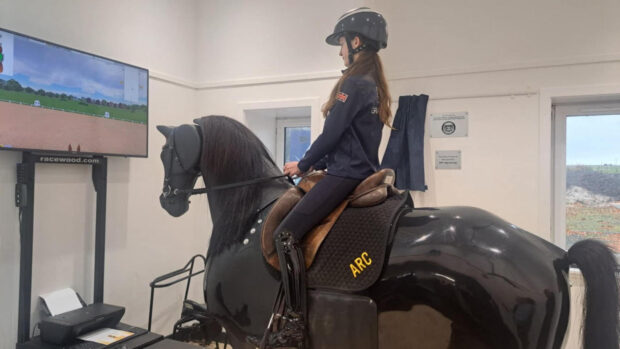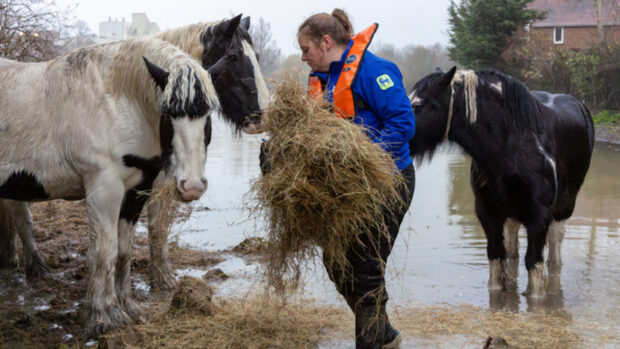Arriving at the yard one morning, you find the tack room cleared of every scrap of leather – despite it being alarmed and padlocked to the hilt. Or your well-secured trailer has been removed from its chains. A couple of rugs, a wheelbarrow or bags of feed have vanished. Or your lorry has been calmly de-immobilised and driven off.
Every week, H&H receives up to a dozen calls from readers telling us these tales. But the true scale, nature and distribution of equestrian crime remains largely unresearched and, as with other issues in the horse world, is only dealt with in a fragmented way.
As far as the police are concerned, horses, tack and transporters are simply stolen property and, if not marked or positively identifiable to the owner, are difficult to recover.
Horse & Hound reported this year (news, 6 May) that, although culprits from travellers’ sites are sometimes suspected, police are reluctant to set foot on some sites.
Yard owners resort to ever more extreme steps to protect their property, with chains, padlocks, alarms and even CCTV. But professional, determined thieves can bypass such gadgets. Insurers’ minimum security conditions now stipulate the type of building, doors and locks they require.
A spokesman for South Essex Insurance Brokers says: “Saddlery and tack is the biggest thorn in insurers’ sides.”
Anna Brown, national secretary for Horsewatch, says: “Equestrian crime in respect of goods and trailers has increased rapidly in the past decade. In respect of horses it has slowed down. But my worry is that we are not being told about every horse that has gone.”
Horsewatch gathered pace in the early 1990s, but the organisation has suffered from internal conflict, an exodus of key figures, a lack of support by police forces, and public apathy.
Coordinators for Manchester and the south-east have not been replaced since leaving their voluntary posts. Heidi Braithwaite, Horsewatch’s Somerset coordinator and south-west representative for five years, is standing down this month.
In an official statement she said: “It’s increasingly difficult to carry out the voluntary role, and I have become disillusioned by the lack of support from our police with regard to circulation of information.”
The territorial approach by individual Horsewatch schemes is illustrated by the organisation’s website, on which Derbyshire is the only region to post regular news updates this year. Meanwhile some news circulates locally by e-mail and on various websites, yet never reaches the main Horsewatch site.
Anna Brown, who holds down a full-time job, keeps four horses and is also the Midlands coordinator, adds: “It all wants a big shake-up, and police support. But until the internal backbiting ends, that won’t happen. Nobody likes to go outside their territory, but stolen goods move around the country rapidly.”
DI David Collings, Hampshire Police’s proactive equine liaison officer, says: “Despite that fact that no national scheme is going ahead, we are moving on with what we do in each force, and trying to support each other as best we can.
“In terms of policing, forces have performance targets in areas like muggings, domestic burglaries, drugs and violent crime. There are limited resources to investigate equine crime. But there is also apathy in the horse community.”
|
||
 |
||


 Get up to 19 issues FREE
Get up to 19 issues FREE TO SUBSCRIBE
TO SUBSCRIBE 



